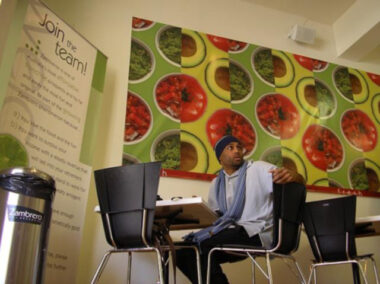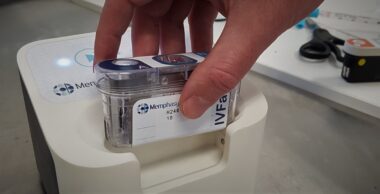Results at a glance:
- Rural confidence has rallied sharply in Queensland, returning to levels last seen in June 2022.
- Seasonal conditions, namely widespread rain, and improving commodity prices – particularly cattle prices – are the key drivers increasing confidence.
- Beef producers are leading the lift in positive sentiment.
- More of the state’s producers are looking to boost investment in their farm operations.
Widespread summer rain across much of the state and the lift in cattle prices are the chief factors behind a boost in confidence levels among Queensland’s primary producers in the first quarter of 2024.
The latest quarterly Rabobank Rural Confidence Survey, released today, found sentiment in the state’s rural sector has increased sharply. Producer confidence has increased from a net reading of -31 per cent in the last quarter of 2023 to +15 per cent this quarter.
More of the state’s producers expect the agricultural economy to improve in the coming 12 months (28 per cent this quarter, compared with 19 per cent in the previous survey) and far fewer producers now expect agribusiness conditions to worsen in the year ahead (at 13 per cent, compared with 49 per cent previously).
Returning to positive territory (ie. with more producers positive than those negative in their outlook) this quarter for the first time since June 2022, Queensland rural confidence had been driven into negative territory over the past 18 months by concerns about rising input costs, heightened risk of foot and mouth disease (FMD), lumpy skin disease, falling commodity prices and El Niño forecasts and declarations.
This quarter, of those Queensland producers who expect the agribusiness economy to improve, 53 per cent anticipate a good season (up from 43 per cent previously), with the same proportion (53 per cent) expecting rising commodity prices in the year ahead (compared with 59 per cent last quarter).
The state’s beef producers are leading this upturn in sentiment – 85 per cent now expect economic conditions to stay the same or improve in the year ahead. Over half of those beef producers who believe the agricultural economy will improve cite good seasonal conditions (54 per cent) and rising commodity prices (53 per cent) as the reasons for their optimistic outlook.
Concern about the cost of farm inputs is continuing to weigh on Queensland producers’ minds. Of those expecting the agricultural economy to worsen in the year ahead, rising input costs was most frequently nominated in the survey (61 per cent this quarter, compared with 19 per cent last quarter). Producer angst around falling commodity prices fell from 53 per cent of these respondents last quarter, to 27 per cent this quarter.
Rabobank regional manager for Southern Queensland Brad James said the north of the state has enjoyed a “solid start” to the season, with good rainfall being reported – and forecasters predicting more rain to come in the next couple of months. And this augers well for those northern producers as we move into autumn, he said.
“However, while this rainfall has been enormously beneficial for many producers, there has been some extreme flooding in the north west, and some producers have suffered stock losses and infrastructure damage.
“Southern Queensland has also enjoyed a good summer for rainfall, with many dams and water storages by-washing (releasing water) and with full soil moisture levels in many districts. However, there are still areas of the state waiting for a break in the season.”
Mr James said the survey’s findings of a recovery in beef producer’s confidence was not surprising, as cattle prices have been steadily improving over recent months.
“Many cattle producers are realistic about price expectations in the year ahead, preferring a solid sustainable price, allowing for productivity and gains throughout the year, rather than the peaks and troughs experienced so often. However, the market is driven by supply and demand and tends to react accordingly from experience, he said.
“Overall, feedback from Queensland producers indicates that there is still a healthy appetite amongst many to continue to invest in the expansion and development of their businesses through both development of current holdings and expansion through additional property purchases.”
The survey, completed last month, found 24 per cent of survey respondents are looking to increase investment in their agricultural enterprise (up from 20 per cent) and the number looking to decrease their investment has fallen from 24 per cent last quarter, to 11 per cent this quarter. The remainder of producers expect to keep investment stable.
Of those Queensland producers looking to increase their farm business investment, there was a slight increase in the number planning to purchase property.
Significantly more respondents, who are planning to lift investment, are also looking to increase investment in on-farm infrastructure (67 per cent of those intending to spend more on their business, up from 55 per cent previously), increasing livestock numbers (at 44 per cent, up from 25 per cent previously) and increasing labour (at 25 per cent, up from 13 per cent previously).
Though significantly fewer Queensland producers who plan to increase investment are now looking to spend on irrigation/water infrastructure (intended by 31 per cent of farmers who are planning to increase investment this quarter, compared with 66 per cent last quarter).
Grain sector confidence also improved in the state.
The majority of the state’s grain growers are anticipating agribusiness conditions will improve or remain the same in the year ahead, the survey found.
Mr James said in terms of summer crops, there are reports of good sorghum crops and the outlook for prices is reasonable.
"And the good sub-soil moisture levels in southern grain-growing areas will set many producers up well for the planting of winter crops,” he said.
The survey found over half of Queensland’s sugar cane growers are expecting the economic outlook to remain stable in the year ahead.
“Good growing conditions across most northern sugar-growing areas and prices well above the five-year average are giving growers confidence about the year ahead,’ Mr James said. “And the sugar cane crops in the Bundaberg region are absolutely outstanding at present.”
The view on the year ahead is similar among the state’s cotton growers this quarter, with the majority expecting agribusiness conditions to remain unchanged.
“In the Emerald area, many cotton growers have been able to capitalise on reasonably good in-crop rain, and over summer, Fairburn Dam has filled to approximately 40 per cent capacity, the highest it's been in five years, giving growers confidence they will be able to finish their crops,” Mr James said. “And in the southern cotton-growing areas, there have been good river flows to top-up water storages.
“The feedback in the survey indicates the outlook of the state’s cotton sector is positive, with producers expecting to receive reasonable prices this year – not breaking records, but reasonably solid,” he said. “However, they will still have to continue to manage those high input costs.”
A comprehensive monitor of outlook and sentiment in Australian rural industries, the Rabobank Rural Confidence Survey questions an average of 1000 primary producers across a wide range of commodities and geographical areas throughout Australia on a quarterly basis.
The most robust survey of its type in Australia, the Rabobank Rural Confidence Survey has been conducted since 2000 by an independent research organisation. The next results are scheduled for release in June 2024.
<ends>
To arrange an interview or for more information on Rabobank’s Rural Confidence Survey, please contact:
Denise Shaw Will Banks
Head of Media Relations Media Relations Manager
Rabobank Australia & New Zealand Rabobank Australia
Phone: 02 8115 2744 or 0439 603 525 Phone: 0418 216 103
Email: [email protected] Email: [email protected]
About us:
Rabobank Australia & New Zealand Group is a part of the international Rabobank Group, the world’s leading specialist in food and agribusiness banking. Rabobank has more than 120 years’ experience providing customised banking and finance solutions to businesses involved in all aspects of food and agribusiness. Rabobank is structured as a cooperative and operates in 38 countries, servicing the needs of more than nine million clients worldwide through a network of more than 1000 offices and branches. Rabobank Australia & New Zealand Group is one of Australasia’s leading agricultural lenders and a significant provider of business and corporate banking and financial services to the region’s food and agribusiness sector. The bank has 90 branches throughout Australia and New Zealand.



